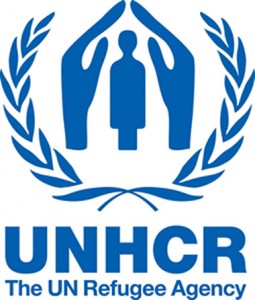Ghana to accede to Statelessness Conventions by 2016
 Ghana has started initiatives that will provide the necessary impetus for it to accede to the United Nations’ Conventions on Statelessness by 2016.
Ghana has started initiatives that will provide the necessary impetus for it to accede to the United Nations’ Conventions on Statelessness by 2016.
Mr James Agalga, Deputy Minister of the Interior, said alongaside these initiatives, the government recognizes the need to develop an appropriate legal and political policy framework, for preventing statelessness and protecting stateless persons.
He said these legal and policy initiatives would streamline current birth registration arrangements, and also the timely registration of refugees and asylum seekers.
Mr Agalga made these remarks on Wednesday in Abidjan during the first-ever Ministerial Conference on Statelessness in West Africa.
The conference on the theme: “Partnership to Resolve Statelessness, ” was organised by the United Nations High Commissioner for Refugees (UNHCR), and the Ivoirian Government, in collaboration with the Economic Community of West African States (ECOWAS).
Statelessness is a situation whereby an individual residing in a state is denied all the privileges and rights given to its citizens, because he or she has no documents to prove that he or she is a citizen.
These individuals are typically in this situation, because they have difficulties proving they possess links to a State due, for instance, to the lack of birth registration and personal documentation that trace their origins, and can confirm their identity.
Populations without birth certificates, abandoned children, undocumented stranded migrants, and individuals living in areas of state succession and border disputes, constitute some of the major groups of people at risk of statelessness in West Africa.
The Ministerial Conference, was preceded by two days of high-level technical debates among experts in the field of nationality and statelessness, and would come up with concrete recommendations on how to prevent, reduce and resolve statelessness in West Africa.
The conference sought to promote the accession to the 1961 Convention on the Reduction of Statelessness and the 1954 Convention Relating to the Status of Stateless Persons.
The Deputy Minister said it was Ghana’s expectation that the UNHCR would continue to play its collaborative role, and provide support to accelerate the campaign for public education, and for the review of the legal policy and administrative gaps which currently govern the subject.
He said Ghana has a number of significant safeguards within its laws that provide protection for individuals who run the risk of statelessness.
“First of all, Ghana is a signatory to a range of international instruments which recognizes the right to a nationality, birth registration and access to documentation.
“Secondly our domestic law regime provides significant protection to persons of concern, which within this context include the stateless,” Mr Agalga stated.
President Alassane Ouattara of Cote d’Ivoire, in his opening remarks, said by 2050, the population of the sub-region would have been doubled to over 600 million, adding that the number of stateless people living in the region, currently estimated at 750,000, would also increase by a similar margin, if no common major action is initiated.
“We must mobilize to make the fight against statelessness, a regional cause. We must ensure that people living in statelessness will become targets to thank you for terrorist groups,” he stated.
Mr Antonio Guterres, United Nations High Commissioner for Refugees, said, in terms of Africa as a whole, one of the main stages of the campaign against statelessness would be the adoption of a Protocol to the African Union Charter of Human Rights and People’s Nationality.
He, therefore, urged ECOWAS member-states to support the African Commission’s efforts in this regard.
Dr Mohamed Ibn Chambas, UN Secretary General’s Special Representative and Head of the UN Office for West Africa, urged African governments to ensure that no one was left stateless; declaring that international and regional co-operation were essential to achieve this goal.
Dr Toga Gayewea Mcintosh, Vice President of the ECOWAS Commission, lauded UNHCR for showing faith in ECOWAS towards efforts to combat statelessness.
Source: GNA
